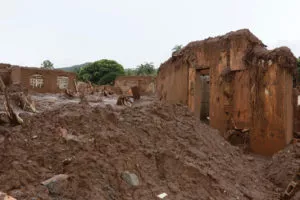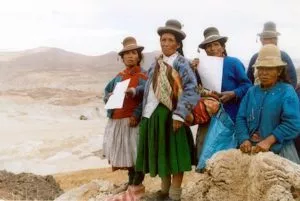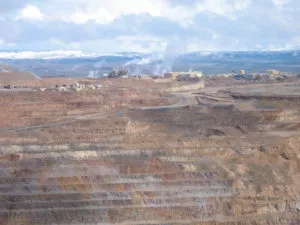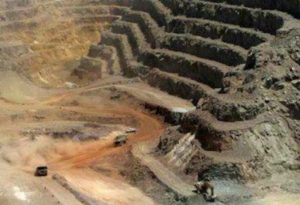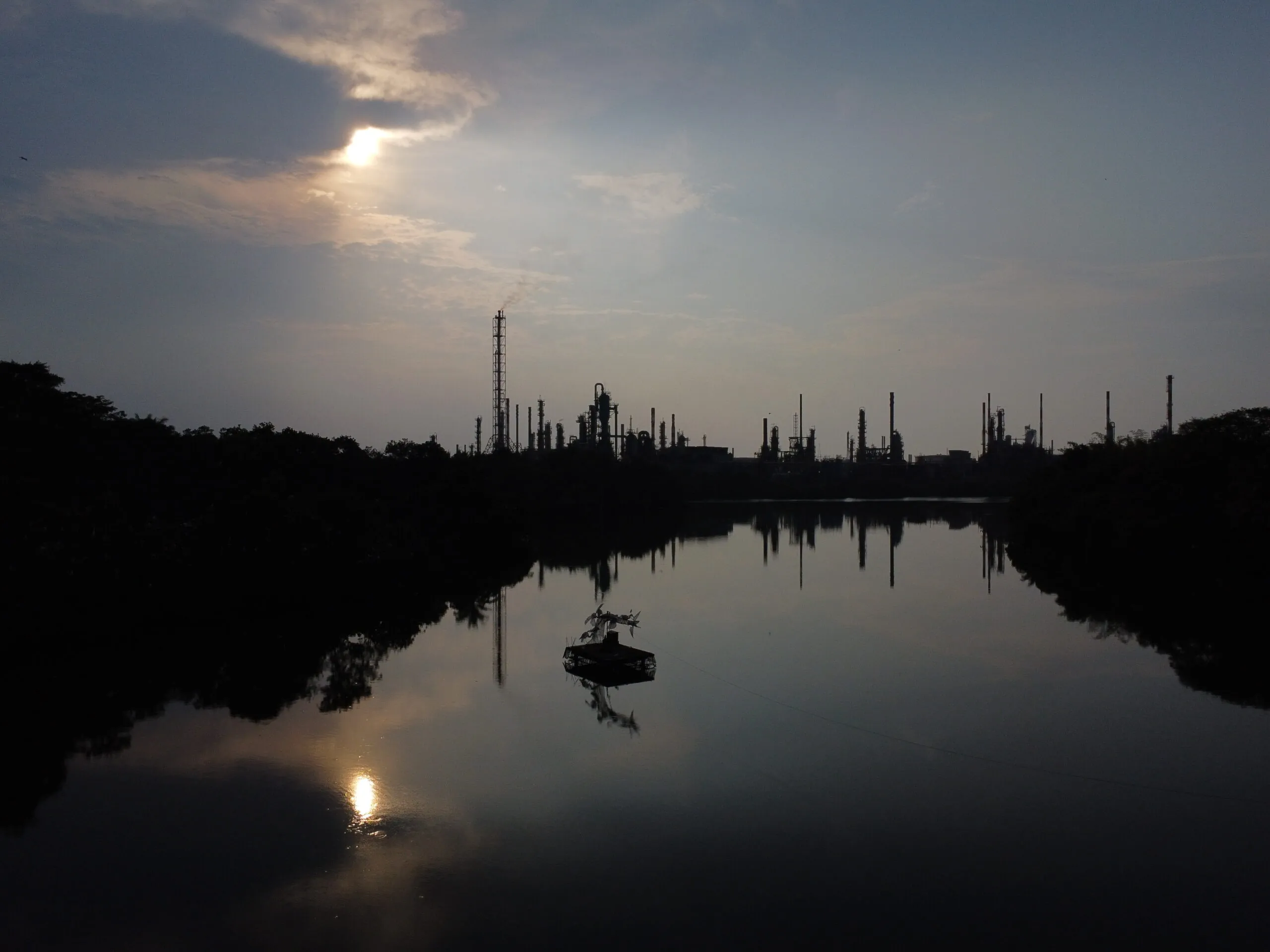
REPORT: Investigation of Ecopetrol Oil & Gas Pollution in Colombia
Hidden methane problem could jeopardize Colombian climate leadership
The Cost of Extraction: Colombia’s Oil and Gas Industry Threatens Communities & the Environment
From March 26 to April 6, 2023, Earthworks was joined by partnering organization Environmental Investigative Agency (EIA) for an in-depth expedition that took place across Magdalena Medio, a pivotal region for oil and gas in Colombia. Earthworks returned to the same oil and gas fields and Ecopetrol’s infrastructure previously visited in 2019. During the investigation, the organizations confirmed 23 cases of greenhouse gas releases indicating methane emissions in violation of Colombian law.
The findings below were documented using a FLIR GF320 Optical Gas Imaging camera by a certified thermographer. They include evidence of what appears to be routine venting and incomplete burning of greenhouse gas emissions, as well as unintended fugitive emissions in oil and gas infrastructure in Yondó, Puerto Boyacá, Barrancabermeja, and Puerto Wilches. The release of gases near communities, waterways, and marshes puts much of the population and ecosystem at risk of serious health and climate harms.
Our findings, presented here, contributed to the report Crude Lies (2025), released by Environmental Investigation Agency (EIA) and a powerful documentary from the BBC, Life at 50°C: Exposing the toxic record of Colombia’s oil giant.
“Pledges on paper are not
reductions in reality”
– Patricia Rodriguez
Our findings, in addition to the Crude Lies report, indicate that Ecopetrol’s hidden methane problem, if left unaddressed, poses serious risk in jeopardizing Colombia’s global methane mitigation leadership. Colombia became the first major economy and first Latin American country to join the bloc of nation-states spearheading the push for a Fossil Fuel Non-Proliferation Treaty at the 28th Conference of the Parties on Climate Change (COP28) in Dubai. The Colombian government’s pledge to reduce the country’s GHG emissions relies strongly on Ecopetrol because the majority state-owned company, which is the largest Colombian company, is the centerpiece of the country’s oil and gas sector.
Earthworks and EIA’s findings are a rare opportunity for President Gustavo Petro to demonstrate national, regional and global leadership, by engaging Ecopetrol on a reform path that would bring effective accountability, transparency, and a fair transition of the country away from oil and fracking.

Findings from Colombia
View Full Size Storymap of Findings
Areas & Regions surveyed
Our investigation focused on three key areas. These locations sit at the heart of the country’s oil and gas industry, where decades of extraction have left a lasting environmental and social impact. Each site provided crucial insights into the realities of energy exploitation, exposing pollution, community resistance, and the broader consequences of Ecopetrol’s dominance in the region. The three locations were in the Magdalena Medio region.
- Barrancabermeja
- Puerto Wilches
- Puerto Boyacá (three departments in Magdalena Medio region)
Key Partners engaged
- Various contributing allies in Colombia, Environmental Investigation Agency (EIA).
Evidence collected
- Leaking equipment, emissions from incomplete/poor combustion in flares, emissions from other combusted sources like compressors and refinery infrastructure, and emissions from what could have been intentional venting.
- Puerto Boyacá: Dominance of Ecopetrol and Mansarovar.
- Barrancabermeja: Refinery in the center of urban area; Ecopetrol dominance in the region.
- Puerto Wilches: Hydrocarbon emissions from flaring, incomplete combustion; epicenter of fracking projects and civil society opposition
Lessons learned
EIA’s investigation, based on the information from the Iguana Papers, independent field research, and interviews with front line activists indicate that Ecopetrol, the largest company in Colombia, has allegedly committed environmental offenses under Colombian laws. The implications of EIA’s findings are deep and wide. The government’s failure to curb emissions from Ecopetrol’s operations threaten Colombia’s emergence as a global climate leader. The mass pollution of the country’s most critical ecosystems undermines national efforts to protect biodiversity and support community livelihoods. Accusations of human rights violations against Ecopetrol are also widely shared by activists who have suffered from cycles of what they claim are intimidation and persecution. The status of Ecopetrol, majority owned by the State of Colombia but privately run in practice, represents a unique opportunity for the country to chart a path to a future where accountability, transparency, and responsibility are central tenets of the national energy strategy and policy framework.
Further, Earthworks recognizes that the administration of President Gustavo Petro has made some big promises as part of a roadmap for a fair and sustainable transition away from fossil fuels. But as the Crude Lies report, the Iguana papers and Earthworks own investigation in Magdalena Medio, show an entrenched corporate way of working in Colombia will continue to make it challenging to prioritize fairness, justice and environmental sustainability for all Colombians.
OGI Footage: Examples of gas & flare in Colombia
In the News


